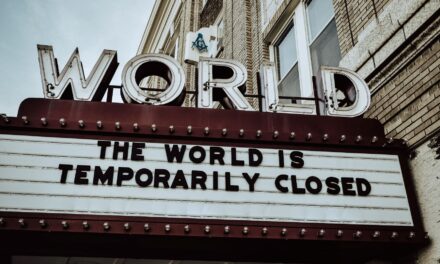Assistant Editor Lisa Low: Social media admittedly stresses me out. My finger sometimes opens the apps without meaning to, the infinite scrolling mechanism can feel like an anxiety thought loop, and I’m putting off watching The Social Dilemma, nervous to see myself too reflected in the documentary’s issues. And while I admire those who completely quit social media or were never on in the first place, I can’t bring myself to do the same. So much innovation and community happen online, especially writing community, which seems increasingly to live on Twitter.
Not everyone has this fraught relationship with social media, but almost every writer I know cherishes some sort of writing community, even if they find it elusive. In the past couple years, I’ve been thinking more about what it means to build writing community—a process that suggests ongoing commitment and work—beyond the magical-seeming, one-time event of finding community or meeting other writers. To piece together the bigger picture, I reached out to former contributors (some of whom are more active on social media, some less) for their take on building writing community.
Pauletta Hansel, from miCRo, on creating community regionally as a teacher and mentor: My writing communities in Cincinnati overlap my Appalachian community, but have their own identities, of course. My own particular mission here has been to bring people together to write. When does it stop being “just” a class and start being a community? I don’t have a hard answer to that, but here are some reflections. First, I think some of us need community around our writing more than others. I am one who does (perhaps because of my history), and so I develop classes and workshops as if I am developing them for myself. I need to know the people I am working with. I want to take a deep dive into their writing, if possible, and not just focus on craft as an external, one-size-fits-all absolute, but to try to understand what shape it takes for this particular poet.
The writings of educator Parker Palmer have influenced my understanding of learning communities: that they must, in his words, be both hospitable and charged—the latter meaning to me that the work of the poet truly matters, that we are always striving to help each other make the best poems we can. So maybe it becomes community when we take that striving outside of the workshop or classroom as well, when we show up at readings, when we sit down with each other at a bar or cafe or kitchen table to talk poetry, just because we want to. Because we need to.
I think that social media can help support this kind of community—shout-outs to other poets, getting the word out about our books and readings, even creating publishing opportunities on blogs and websites. Maybe that’s where Twitter comes in for the tweeters among us. In my life, the community has come first, though social media has brought folks into the writing communities I am part of and has helped me connect with others new to me.
JJ Peña, from miCRo, on “chasing after people you admire”: I think I’ve tried to establish networks with writers in almost all manners, and most of my communities are on Twitter (now especially). I’ve attended local writing groups (pre-pandemic), university clubs, and tried to find my tribe at open mics and book readings. I’ve even tried connecting with strangers I’ve met off dating apps, from men who claimed they could write but just wanted sex.
Perhaps one of the biggest pitfalls in all this is not knowing who you’ll meet. I’ve met a few rad peeps but far too many unfriendly and unpleasant people, which honestly really make me hesitant from redoing any of these blind-writer-dating experiences. It’s also really difficult to find someone’s writing aesthetic that matches your own and that you can grow from.
Being really outspoken and chasing after people you admire is probably my biggest tip. Find who you want to work with and reach out. Be Brave. You really can’t wait for community to find you (although this can and does happen), you have to be active about it. That’s my biggest advice. I forced myself to talk to two writers in my community and they’ve become my writing group and friends. I just had to have initiative and swallow social fears.
Jenna Le, from Issue 17.1, on democratization and authentic friendships: I actually don’t use Twitter, although I’ve enjoyed building community through private groups on sites like Facebook and Goodreads, where people feel more comfortable not only posting unpublished drafts for feedback, but also opening up about sensitive topics they would hesitate to broach in a less secure space. The internet in general has been a huge boon for poets like me who have at times struggled with social anxiety in in-person spaces—it’s similarly been a welcome democratizing force for writers lacking the degrees or credentials that grant access to certain in-person communities: those based around MFA programs, for instance.
For me personally, though, I’ve found the most sustainable, long-lasting, and rewarding creative writing communities are those rooted in authentic friendships, rather than floating mist-like around superficial ideas of connection-making, favor-trading, or mutual marketing. Having one poet whom you trust and consider a real friend, not just a “poet friend,” is not just a treasure in itself, but also a terrific wellspring for community. Through one trusted friend, you are introduced to pre-vetted friends-of-friends, and then friends-of-friends-of-friends, and a world can unfold from there.
Ira Sukrungruang, from Issue 16.2, on Facebook and “Create Days”: Though I am on Twitter, I find the best place for a writing community has been on Facebook. There are so many wonderful groups I am part of, groups that are always active. If I need help with a project, looking for reading recommendations, I simply post my inquiry in a post and within seconds I will get responses. I love that. It has been wonderful to share and see what others are reading and writing. There are so many groups about pedagogy, about publishing, everything. Most of my feed are postings from these groups.
At the places I’ve taught, I’ve created special days to bring writers in around a topic or theme. Every year I do Submitting Day, where we come together to submit our work to magazines. If this weren’t pandemic time, the event would be informal, and there would be food, and we’d share and talk about what are good places to send work. Even if a writer isn’t ready to send yet, they can come. I’ve done days that revolve around authors like Toni Morrison and Amy Tan, or around Banned Books.
As social media continues to change, I’m excited to incorporate a combination of IRL and virtual community-building strategies into my writing lifestyle, remembering that Twitter is only one way. Beyond our contributors’ insights, here’s an ongoing list of ideas I’ve brainstormed:
- Send a personal note (e-mail, DM) to a writer after reading a piece of theirs that you admire.
- If funds are available, plan a writing retreat with friends/colleagues, as structured or unstructured as you like.
- Writing community isn’t just about building relationships with other writers. Being your non-writer friends’ point person—for writing tips and reading recommendations, for example—also strengthens writing community.
- Provide a resource for your local writing community or the writing community at-large (panels, shared Google folders, interview series, submission calendars, MFA and post-MFA blogs, the De-Canon project).
- Volunteer with a writing group or organization, or mentor a young person.












